In case you haven’t heard, there’s a new season of Night Court airing right now. Now that may surprise you if you, like most of us, remember the show going off the air back in 1992. But it may be slightly less shocking if I tell you that the new series, like approximately 75 percent of television these days, is a reboot.
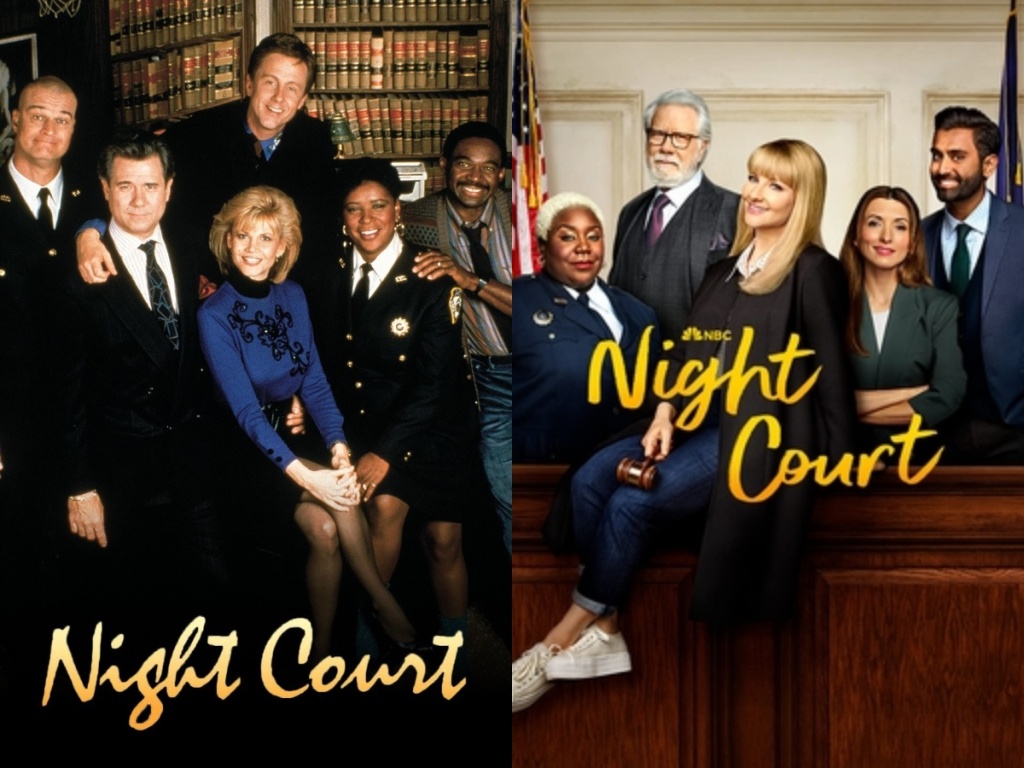
We live in the age of reboots on TV, and I think there are few obvious reasons for that. First of all, the people who fell in love with shows like Night Court during their formative years in the 80s and 90s are now largely the ones calling the shots at the networks, contributing greatly to the already-cyclical nature of pop culture. If you loved something once, it’s not unnatural or unusual to want to reclaim it and bring it back again, so when that kid who grew up watching DuckTales was given a shot at pitching an animated series to Disney, you damned well better believe he was gonna pitch a new DuckTales.
The other reason, of course, is that the TV world in utter chaos as ratings for broadcast television drop like Wile E. Coyote strapped to an anvil and nobody knows how to interpret what little data we get from streaming services. It’s considered a safer bet to hitch your star to an older series that might bring its older audience along for the ride. It’s why we got shows like The Connors, Fuller House, Girl Meets World, Quantum Leap, Animaniacs, Raven’s Home, One Day at a Time, And Just Like That, and, for the kiddos from the aughts, iCarly. It’s why every couple of months somebody floats the idea of a new version of The Office and why Bryan Cranston likes to tease us to say he’d totally be down to resurrect Malcolm in the Middle. Reboots are here and they’re not going anywhere. It’s like all these old shows were buried in the TV Land Pet Sematary, and sometimes they come back VERY wrong.
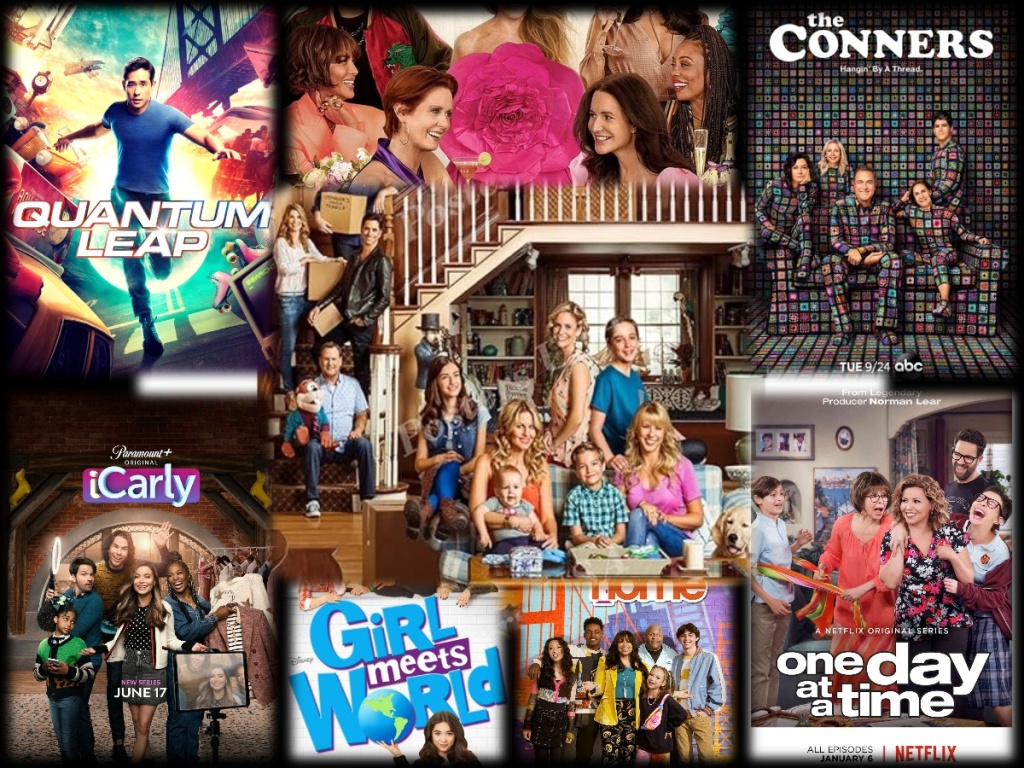
The truth is, like any other wave in entertainment, there are good and bad attempts, and I think one of the things that contributes to how well a reboot is accepted is the adherence to the original. It’s bizarre how often a studio will bring back an old show and then change everything about it, sometimes resulting in something as appalling as Thundercats Go! (the Gage Creed of the TV Land Pet Sematary). The logic of the producers is usually something along the lines of “We’re trying to get new fans, not old ones.” My response to this is, “if you’re not trying to get the old fans, why the hell did you call the show Walker: Texas Ranger?”
One of the most interesting examples of both a failed AND a successful reboot is Star Trek: Picard. When the first season was launched, the idea was to focus solely on Patrick Stewart’s Jean-Luc Picard character, with only sparse appearances from some of his old castmates. They didn’t want to just make season 8 of Star Trek: The Next Generation. The problem, of course, was that the fans just wanted season 8 of Star Trek: The Next Generation. So after two seasons of – I’m going to be kind here – dubious quality, for the third and final season they threw away most of the elements that weren’t working, got the crew of the Enterprise-D on the phone, and made one of the most entertaining and warmly-regarded seasons of TV in Trek History.
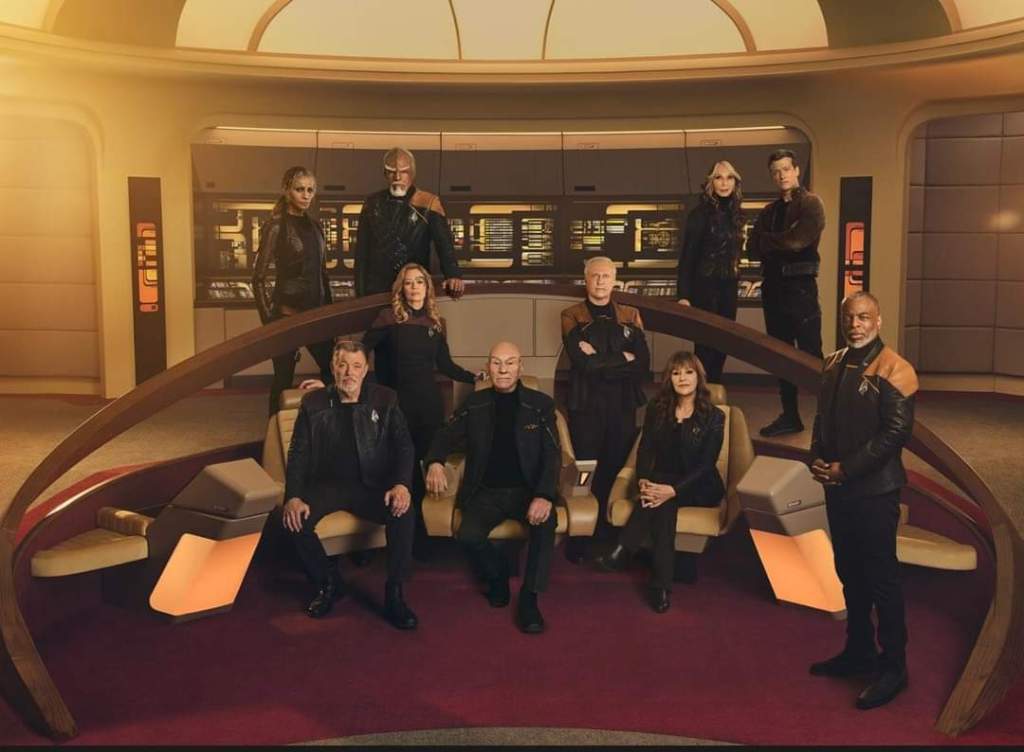
But back to Night Court. The new series is set in the same courtroom as the original, and it is a continuation rather than a full continuity restart such as Charmed, which I for one prefer. The head of the new ensemble is Melissa Rauch (of The Big Bang Theory) as Judge Abby Stone, daughter of the character played by the late Harry Anderson in the old series. While many of these reboots make an effort to have a cast that frequently blends the old and the new, there isn’t a ton of cross-pollination in Criminal Court Part Two, and for a fair enough reason: most of the original cast is no longer with us. Night Court, tragically, has suffered a far greater attrition rate than most other shows of the 80s. Of the entire original main cast, only three of them were still alive when the reboot was announced, and one of them (the great Richard Moll, who played Bull Shannon) passed away after season one without ever agreeing to make an appearance. Marsha Warfield, touchingly, has made two appearances, and Brent Spiner (who played a recurring character for a few years on the original) has shown up as well, but fans looking for familiar faces will be disappointed.
The only original cast member that’s a regular on the new version is John Larroquette, whose Dan Fielding is almost unrecognizable as the same character. 80s Dan was sleazy, lascivious, and somebody that wouldn’t last ten minutes in a modern courthouse without getting “Me Too”ed into oblivion, which is probably the reason for the drastic change. Modern Dan is old, curmudgeonly, a combination of Oscar the Grouch and Mr. Wilson from Dennis the Menace. I’m not saying that I need a sleazeball character for a show to be enjoyable, but considering how it was his defining characteristic, it seems ridiculous that his bed-jumping past is almost completely ignored in favor of this somewhat lonely man that Dan has become. I don’t even mind that he’s changed, I just wish there was a clearer path of transition, because they don’t talk about his past at all. He’s mentioned the death of his wife, which is implied to have triggered this change in his personality, but HELL, that’s a story I want to know! Tell me about the woman who changed Dan!
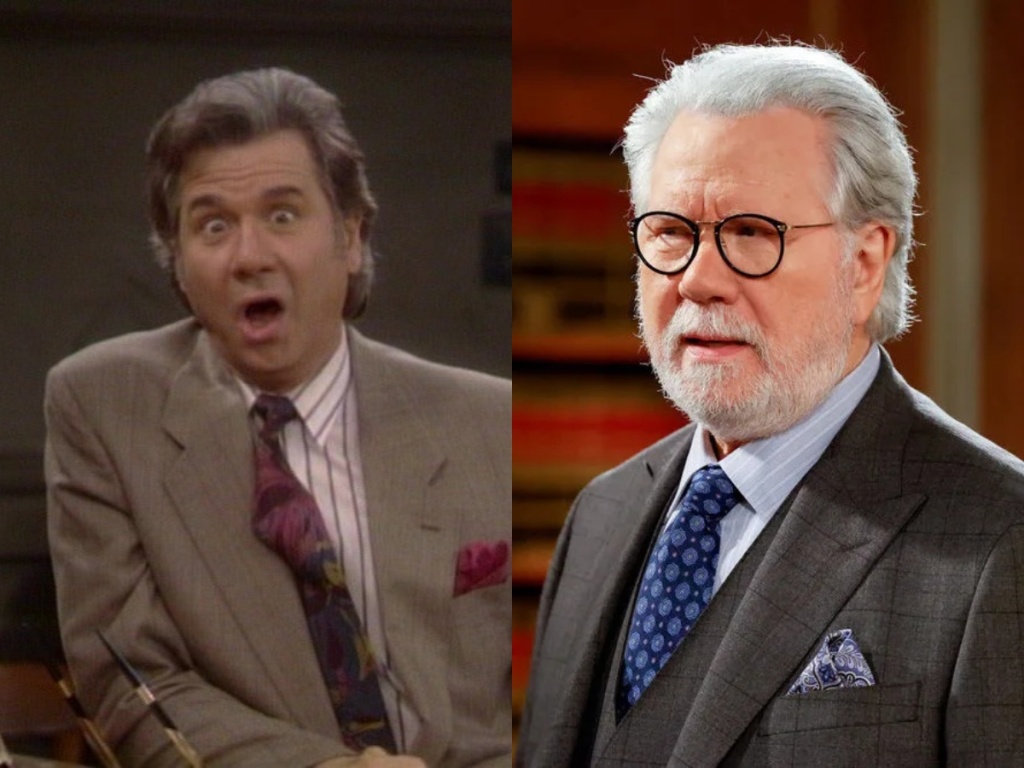
The show isn’t quite as wacky as the original either. Oh sure, the classic series didn’t start wacky, but it spun wildly out of control and by the final season it was practically a live-action cartoon. In fact, in one memorable episode, a defendant in a one-scene gag turned out to be the fully-animated and aforementioned Wile E. Coyote. The reboot occasionally makes a flailing grab at bringing that sensibility back, but it usually feels forced. So far the most authentic thing about the series is ditching the actor playing the Court Clerk and replacing him between the first two seasons.
Anyway, the new Night Court is okay. It’s not great, it’s okay, and that’s how I feel about most of the reboots that I’ve watched. Fuller House drew most of its charm by reminding the viewers about the cheese of the original series. The Animaniacs relaunch gave me a few laughs, but there was nothing that came even close to the genius of the Anvilania episode of the classic.
And then there’s Frasier.
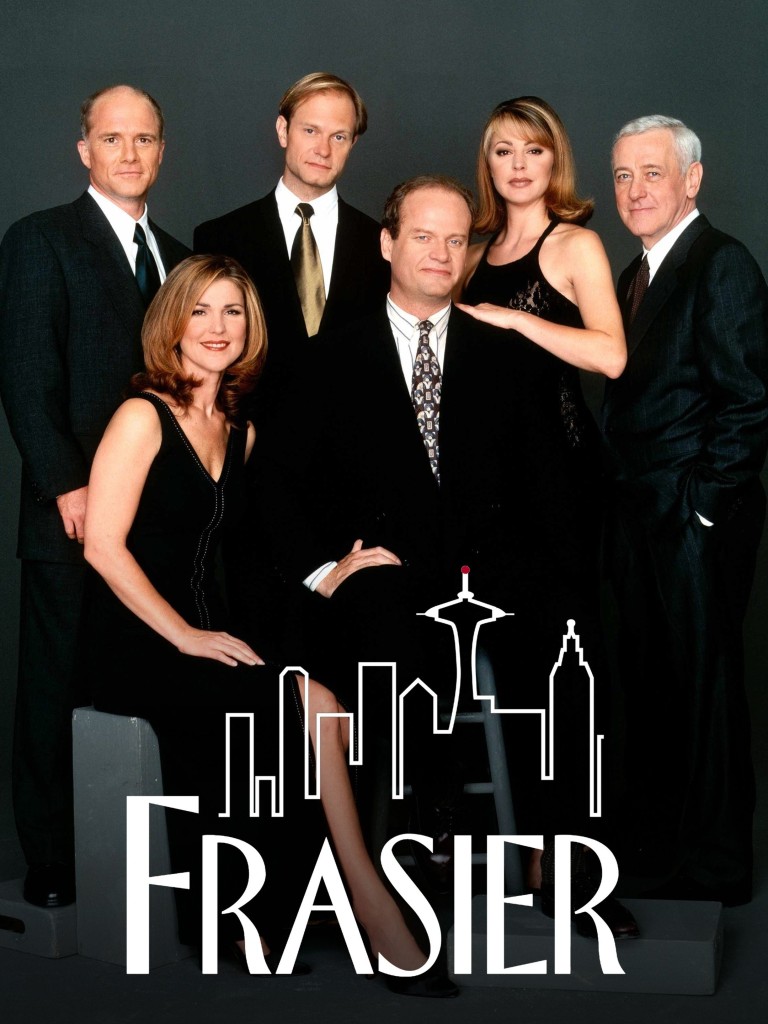
I’ve written before of my love for Cheers and how I consider it one of the greatest sitcoms of all time, and that love extends to its spinoff. In fact, I would say that Frasier and Better Call Saul belong on a special shelf labeled “spinoffs as good as and sometimes even better than the original.” It is a very, very exclusive club. Laverne and Shirley keeps petitioning for admission but is denied on the grounds of the Cindy Williams-less last season. And because I loved Frasier so damned much, I was wary of the reboot when the first season dropped last fall. I finally worked myself up to give it a watch and…
…be surprised by this…
…it’s okay.
Let me tell you a little bit about the new set-up. In the original Frasier, Kelsey Grammer’s character from Cheers moved from Boston to Seattle where his father Martin (John Mahoney) wound up moving in with him. Frasier, of course, was a Harvard-educated psychiatrist with more than a little bit of pretension, whereas his father was a retired cop who liked beer and basketball. The Odd Couple style dynamic between them provided a lot of the fuel for what was one of the greatest comedies in television history (and that’s not even bringing up the brilliance of the rest of the cast). In the reboot, Frasier moves back to Boston and moves in with his son, Frederick (played by Jack Cutmore-Scott) who has inherited both his father’s intelligence and his grandfather’s working-class sensibilities. The original show gave us a long and rewarding arc of Frasier and Martin reconnecting and forging a sincere and touching bond. In perhaps the reboot’s most interesting twist, Frasier deliberately moves in with his son in an attempt to recreate this father/son bond following Martin’s death.

Cutmore-Scott and Grammer work well together, mirroring the Frasier/Martin dynamic but reversing the archetypes of the characters. The rest of the cast, though, isn’t as engaging, and I don’t think there’s anybody who watches the reboot who isn’t waiting for Niles and Daphne to show up. Obviously the late John Mahoney can’t make an appearance, but his specter hangs over the first season of the reboot and it makes for one of the most authentic elements of the show. It’s telling, though, that the two best episodes of the first season are the ones that guest-starred Bebe Neuwirth (as Frasier’s ex-wife and Freddy’s mom Lilith) and Peri Gilpin (as Frasier’s old radio producer Roz Doyle). Supposedly David Hyde Pierce and Jane Leeves, who played Niles and Daphne in the old show, were approached to appear in the reboot but declined. I’ve probably heard a half dozen explanations for why they turned the offer down, and since I have no idea which if any of them is correct, I’m not going to speculate or point fingers. All I’m going to say is the show has a much better chance of getting a season three if they find a way to get Pierce and Leeves to show up in season two.
If you’re going to bring back something from the past, you need to keep in mind what people loved about it in the first place. That doesn’t mean it needs to be exactly the same. In many cases – be it because of changing societal values or the loss of beloved performers – it can’t be. But if you don’t at least identify the spirit of the original and do your best to bring it back in the reboot, then what the hell is the point?
Blake M. Petit is a writer, teacher, and dad from Ama, Louisiana. His most recent writing project is the superhero adventure series Other People’s Heroes: Little Stars, now complete on Amazon’s Kindle Vella platform. He’s waiting with baited breath for the reboot of Mama’s Family now that Vicki Lawrence is actually age-appropriate to play Mama.





